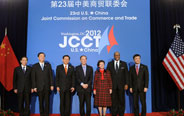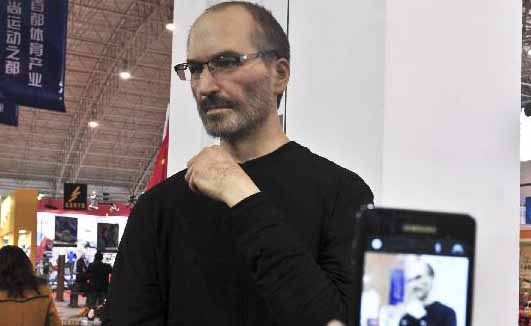

Working as Fujian governor, he was the first in the country to launch a campaign to crack down on food contamination.
In 1999, he first put forward the idea of improving IT infrastructure and introducing information technology to help the public. Fujian had been the only province in China where all hospitals were linked by computer networks and shared digital medical records by 2010.
In 2002, Fujian launched the reform of the collective forest property right system, becoming the first in the country.
During Xi's tenure, Fujian was among the first provinces in China to adopt special policies to restore ecological balance and protect the environment. This has made Fujian the province with the best water and air quality as well as the best ecology and environment in the country.
After his transfer to Zhejiang Province in 2002, Xi put forward numerous development targets for the economy, public security, culture, the environment and the rule of law.
He initiated local industrial restructuring, transforming the province's extensive, less-efficient growth pattern, and encouraged quality enterprises from outside the province to invest in Zhejiang.
In addition, he proposed a development mode that would give equal weight to both manufacturing and commerce, a mode based on Zhejiang's own conditions. He also supported enterprises' efforts to expand overseas and supported start-ups by ordinary citizens.
 |  |
 30 wushu masters join PLA Marine Corps
30 wushu masters join PLA Marine Corps Weekly review of military photos (2012.12.10-12.14)
Weekly review of military photos (2012.12.10-12.14) Those moments that melt your heart
Those moments that melt your heart Putin's diplomatic strategy becomes more pragmatic
Putin's diplomatic strategy becomes more pragmatic  Marine brigade in high-altitude parachute training
Marine brigade in high-altitude parachute training China and US agree on major trade measures
China and US agree on major trade measures Nanjing Yangtze Fourth Bridge to open on Dec.24
Nanjing Yangtze Fourth Bridge to open on Dec.24 Macao SAR celebrates 13th anniversary
Macao SAR celebrates 13th anniversary Dec. 21, 2012 is an ordinary day
Dec. 21, 2012 is an ordinary day Photos: Our pursuits of hope in 2012
Photos: Our pursuits of hope in 2012 Bone-chilling cold, but lots of fun!
Bone-chilling cold, but lots of fun! Female stars' grins: too horrible to look at !
Female stars' grins: too horrible to look at ! 7th China Int'l Cultural and Creative Industry Expo
7th China Int'l Cultural and Creative Industry Expo Christmas time around the world
Christmas time around the world 2012 international photography award winners
2012 international photography award winners